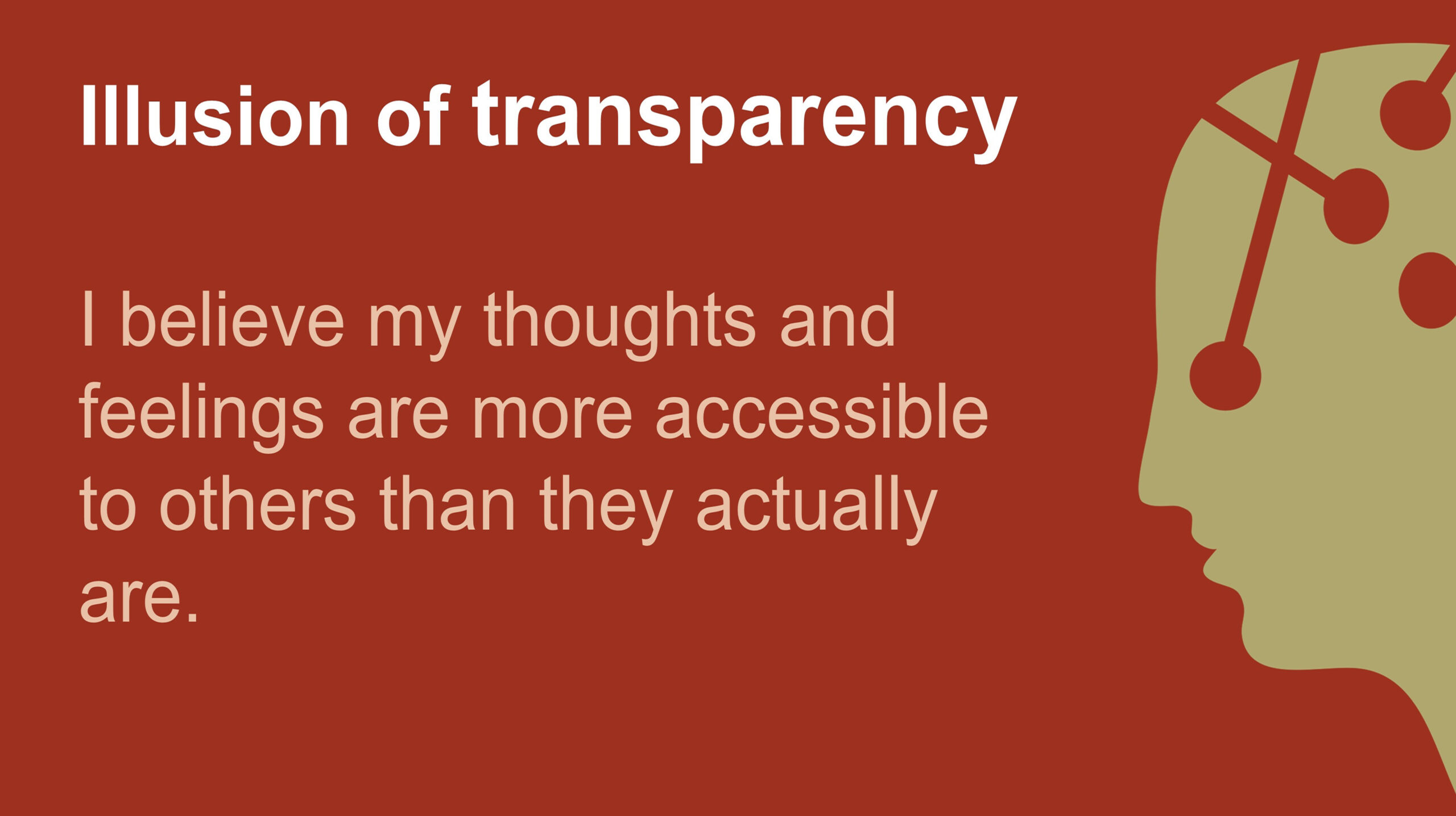The illusion of transparency is a cognitive bias that occurs when individuals overestimate the extent to which their personal thoughts, feelings, and emotions are apparent to others. People often believe that their inner states are more visible or obvious to others than they actually are, leading to self-consciousness and social anxiety.
Explanations:
The illusion of transparency is rooted in egocentrism, where individuals naturally focus on their own perspectives and assume that others share the same level of insight into their inner thoughts and emotions.
Examples:
Public Speaking: A person giving a public speech may feel extremely self-conscious, believing that their nervousness is apparent to the audience, even when it may not be evident.
Job Interviews: Job candidates might become anxious, thinking that interviewers can see their anxiety or insecurity, when in reality, interviewers may not perceive it.
Social Interactions: Someone in a social gathering may feel embarrassed or self-conscious, assuming that others can easily recognize their discomfort.
Solutions:
Empathy: Understand that most people are primarily focused on their own thoughts and experiences, so they may not be as attuned to your inner states as you think.
Communication: Open communication with trusted individuals can help clarify misunderstandings and ease concerns related to the illusion of transparency.
Mindfulness: Practicing mindfulness can help individuals become more aware of their thoughts and emotions, allowing them to manage them more effectively in social situations.
Self-Compassion: Be compassionate toward yourself and recognize that feelings of self-consciousness are common and not necessarily indicative of others’ perceptions.
Addressing the illusion of transparency involves recognizing that others are often not as perceptive of one’s inner states as one might believe. By practicing empathy, open communication, and self-compassion, individuals can reduce the impact of this cognitive bias on their social interactions and overall well-being.
